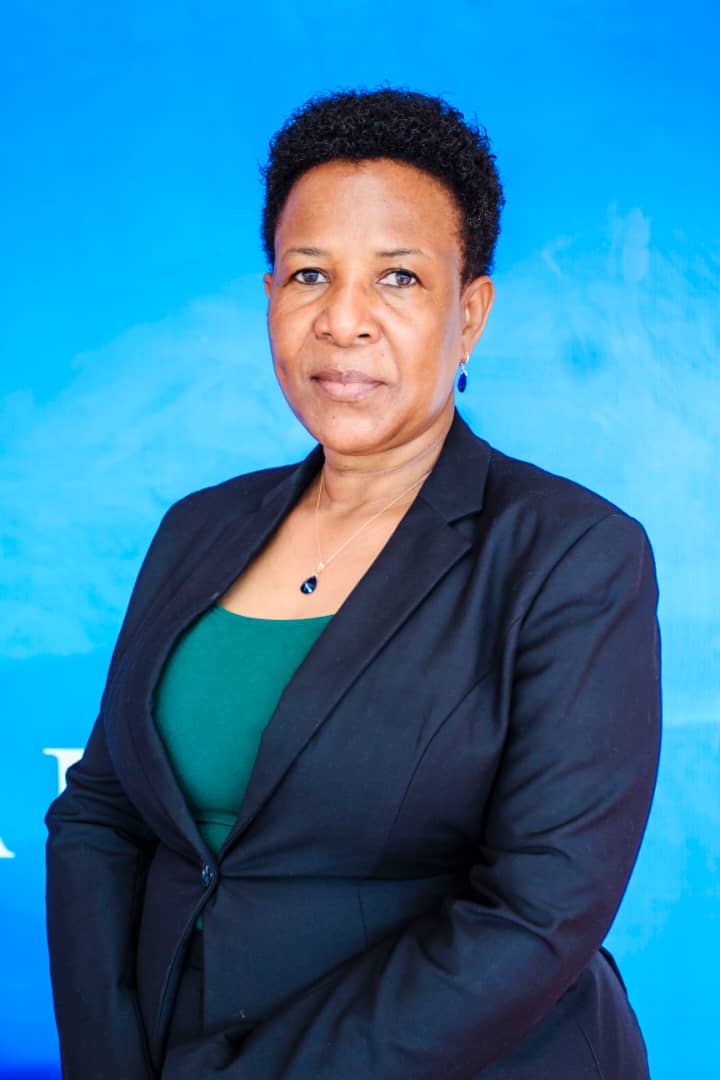X
Search for Staff
- Home
- Contact Details

BLANDINA LUGENDO ROBERT
Lecturer and Dean at School of Aquatic Sciences and Fisheries Technology, School Of Aquatic Sciences And Fisheries Technology
Education:
BSc, MSc (Dar), PhD (Radboud University Nijmegen, The Netherlands)
Teaching:
Dr Lugendo teaches various courses at the School of Aquatic Sciences and Fisheries Technology including Fisheries Science; Seagrass, Mangrove and Seaweed Ecology; Estuarine and Wetland Ecology; Aquatic Resources and Management; and Fish Ecology.
Research:
- Ecosystem Based Protection of the Coastal Zone: The Effectiveness of Seagrass Meadows in Coastal Erosion Management. (Principal Investigator). Funded by WIOMSA through MASMA Programme. 2019 to date.
- DNA barcoding for delineating seagrass species in Halophila ovalis complex and Halodule genera in Tanzania. (Associate Investigator). Funded by WIOMSA through MARG1. 2019- 2020.
- Improving DNA Barcoding with High Resolution Melting analysis (Bar-HMR) for seagrass species delineation in Tanzanian coastal waters. (Associate Investigator). Funded by WIOMSA through MARG1. 2021 – 2022.
- Ocean acidification observation in Tanzanian coastal waters. (Team Member). Funded by UN Nairobi Convention/WIOMSA –2019 to date.
- Sources and distribution of microplastics in sediments and waters of Lake Victoria and its main tributaries. (Team Member). Funded by IFS – 2018 to 2021.
- Assessment of Ocean Acidification (OA) conditions in key and spatially isolated ecosystems of Mnazi and Chwaka Bays – Tanzania. (Associate Investigator). Funded by WIOMSA through MARG1. 2018 - 2019.
- The potential role of mangroves in protecting adjacent marine habitats from land-derived nutrient loads. (Principal Investigator). Funded by WIOMSA through MARG1. 2018-2019.
- Securing estuarine biodiversity and related fisheries-based livelihoods through improved management of prawn fisheries in Rufiji Delta Tanzania (Coordinator - UDSM part). Funded by IOC through WWF Tanzania. 2017 – 2018.
- Using stable isotope signatures to examine sewage pollution status at Ocean Road and Msasani - Dar es Salaam and Nunge - Bagamoyo, Tanzania. (Principal Investigator). Funded by WIOMSA through MARG1. 2015-2016.
- Fish community structure along a tropical mangrove-lined creek in Mbegani (Bagamoyo), Tanzania. (Principal Investigator). Funded by WIOMSA through MARG1. 2008 - 2009.
- The influence of the presence of mangroves on fish community structure in adjacent habitats. (Principal Investigator). Funded by UNESCO-LOREAL for Women in Science Fellowship. 2004 – 2005.
- Utilization by fish of shallow-water habitats including mangroves and seagrass beds along the Tanzanian coast. (Ph.D. Research). Funded by NUFFIC-MHO Project. 2001 – 2006.
- Distribution and ecology of intertidal seagrass communities at Ocean Road and Kunduchi areas, Dar es Salaam (M.Sc. Research). Funded by SIDA SAREC. 1996-2000.
Publications:
- Amone-Mabuto, Manuela; Hollander, Johan; Adams, Janine; Lugendo, Blandina; Bandeira, Salomão (2022). A field experiment exploring disturbance-and-recovery, and restoration methodology of Zostera capensis to support its role as a coastal protector. https://doi.org/10.5061/dryad.k98sf7m8v (in production).
- Ndunguru S , Njau M. and Lugendo BR (2022). Effects of temperature and salinity on incubation time, hatching success, and larvae survival of the Giant tiger prawn Penaeus monodon under experimental conditions. Tanzania Journal of Science 48(2): 435-446.
- Sululu JS, Lugendo BR and Benno BL (2022). Reproductive potential of the Mackerel scad, Decapterus macarellus (Cuvier, 1833) in the coastal waters of Tanzania. Tanzania Journal of Science 48(1): 88-98
- Lugendo BR, Kimirei IA (2021). Anthropogenic nitrogen pollution in mangrove ecosystems along Dar es Salaam and Bagamoyo coasts in Tanzania. Mar Pollut Bull. 168:112415. doi: 10.1016/j.marpolbul.2021.112415. Epub 2021 Apr 28.
- Mangora M, Lugendo BR, Shalli MS, Semesi IS, (2016). Mangroves of Tanzania. In Bosire J. O., Mangora M. M., Bandeira S., Rajkaran A., Ratsimbazafy R., Appadoo C. and Kairo J. G. (eds.). Mangroves of the Western Indian Ocean: Status and Management. pp. 33-49. WIOMSA, Zanzibar Town. ISBN 978-9987-9559-4-7.
- Lugendo BR (2015). Mangroves, Salt Marshes, Seagrass Beds. In Paula J. (ed.). UNEP-Nairobi Convention and WIOMSA. The Regional State of the Coast Report: Western Indian Ocean. Pp. 53 -69. UNEP and WIOMSA, Nairobi, Kenya. ISBN 978-9987-9559-7-8.
- Kimirei IA, Igulu MM, Semba M, Lugendo BR (2015). Small estuarine and non-estuarine mangrove ecosystems of Tanzania: overlooked coastal habitats? In Salif Diop, Peter Scheren, John Ferdinand Machiwa (eds.). Estuaries: A Lifeline of Ecosystem Services in the Western Indian Ocean. Pp. 209-226. Springer International Publishing. ISBN 978-319-25370-1.
- Gullstrom M., Dorenbosch M., Lugendo BR., Mwandya AW., Mgaya YD., and Berkstrom C. 2012. Biological Connectivity and Nursery Function of Shallow-Water Habitats in Chwaka Bay. In People, Nature and Research in Chwaka Bay, Zanzibar, Tanzania, de la Torre-Castro, M. and TJ. Lyimo (eds.). Zanzibar Town: WIOMSA Pages 175-192. ISBN 978-9987-9559-1-6.

